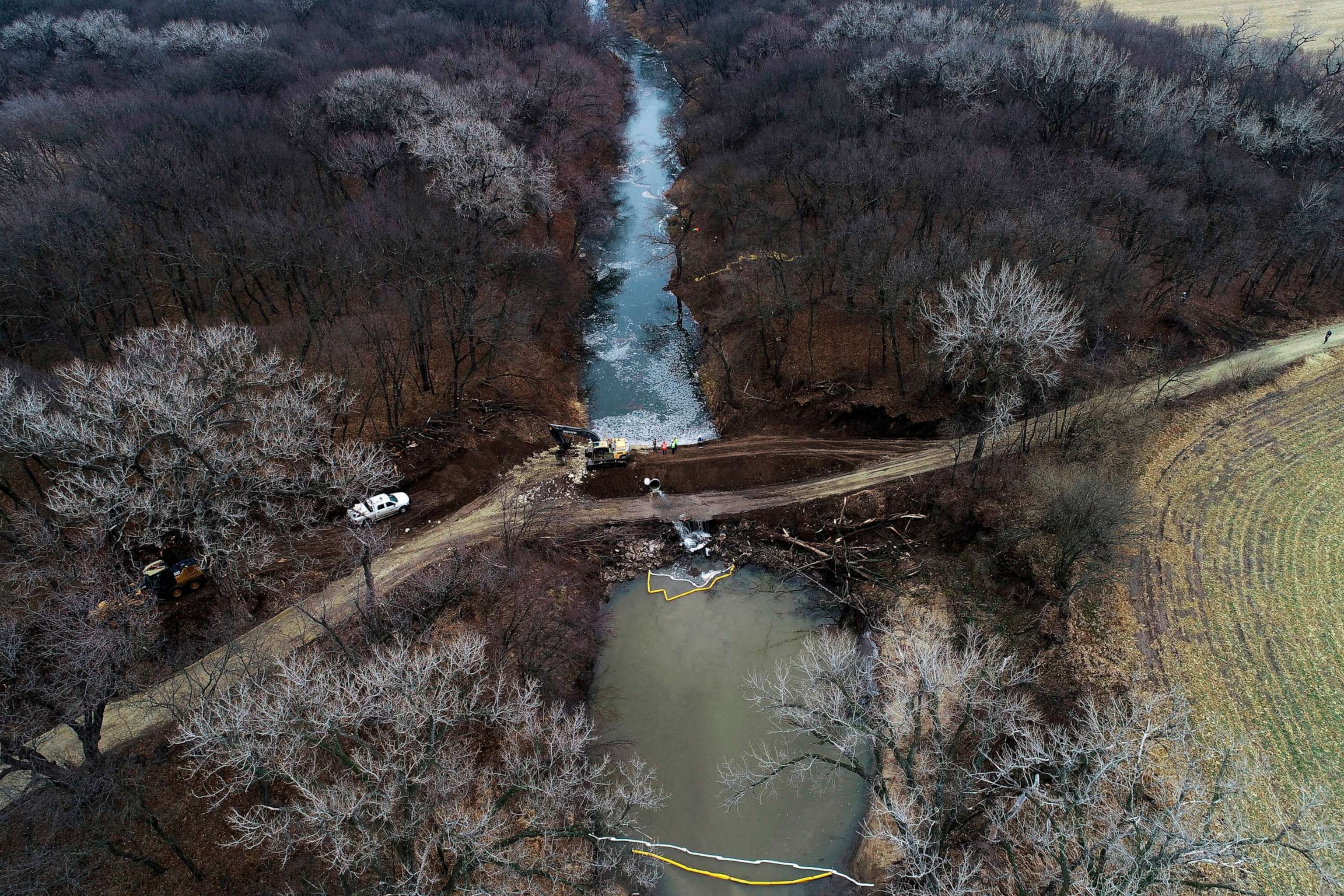Keystone pipeline faces new rules after major oil spill
Oil spills have become more frequent and severe, a federal agency said.
Oil spills along the Keystone pipeline that runs from Canada to Texas have become more frequent and severe, prompting stricter regulations for a 1,200-mile stretch of the pipeline, a federal agency said on Tuesday.
TC Energy, the company that operates the Keystone pipeline, must lower the operating pressure for crude oil on the targeted stretch, which makes up nearly half of the pipeline, the agency said.
"We are currently reviewing the Amended Corrective Action Order (ACAO) issued by the Pipeline and Hazardous Materials Safety Administration," TC Energy said in a statement to ABC News. "Our commitment to the safe operations of our system is unwavering, and we will comply with the ACAO. The Keystone Pipeline System has been operating under operational mitigations, within the pressure restrictions applied in the PHMSA ACAO, since it was returned to service."
The federal order follows a major pipeline rupture on Dec. 7 near Washington, Kansas, a town at the state's northern border with Nebraska, where about 13,000 barrels or 550,000 gallons of crude oil spilled from the Keystone pipeline, the Pipeline and Hazardous Materials Safety Administration said.
The pipeline failure occurred at a girth weld, a point that adjoins two pipes, the agency said.
Since 2009, the Keystone pipeline has experienced three failures at girth welds and at least three additional accidents that occurred for other reasons, the agency said. In all, those accidents resulted in spills totaling about 25,200 barrels of crude oil, the agency said.
Operation of the pipeline under current procedures "is or would be hazardous to life, property, or the environment," the agency said.

In a statement to ABC News, TC Energy said it is investigating and addressing the issues with the pipeline following the accident in December.
"We continue to progress our remediation and the root cause investigation at our Keystone Milepost-14 incident site in Washington County, Kansas," the company said. "Our commitment to the safe operations of our system is unwavering."
The Keystone pipeline runs from oil sand fields in Alberta, Canada through the midwestern U.S. to oil refineries in Texas.
The Keystone XL pipeline, a proposed 1,179-mile pipeline mirroring the Keystone pipeline, shuttered after President Joe Biden canceled the pipeline's border crossing permit in January 2021, days after taking office.
The move was applauded by environmental groups but drew sharp criticism from some Republican lawmakers, who decried the move for placing an unnecessary restriction on the U.S. oil supply.
Oil production in the U.S. in 2021 was nearly identical to that seen over the final year of the Trump administration, in 2020, and greater than the amount produced in 2017 or 2018, according to data from the Energy Information Administration, a federal agency.



